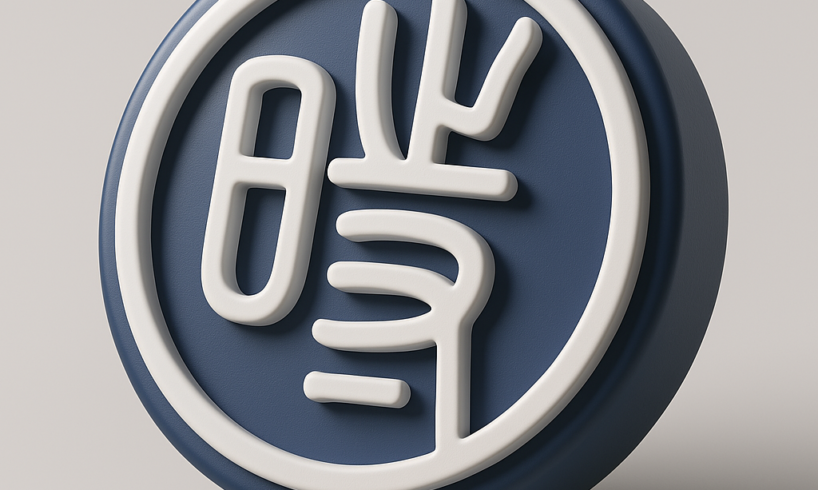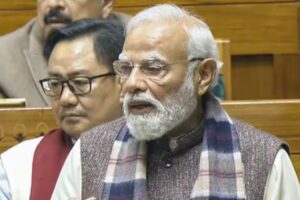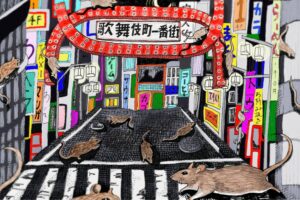
Public backlash has forced local officials in Pengyuan—a community in the city of Jiangmen, Guangdong province—to rescind an order requiring residents to surrender their keys so that sanitation workers can enter outbuildings to fumigate and eradicate mosquitos. The eradication effort is in response to an outbreak of the mosquito-borne Chikungunya virus, which has resulted in over 20,000 confirmed cases throughout Guangdong this year.
The controversy began when residents in Pengyuan began complaining about a notice that had been posted by community officials, informing them that residents would be required to provide a key to parts of their property, such as bicycle sheds, so that community sanitation workers could carry out fumigation and mosquito-abatement work on a regular basis. If residents did not turn in their keys, the notice warned, workers would summon a locksmith to force entry. Some residents reported incidents of sanitation workers entering their properties without permission and confiscating plants, or using intimidation tactics to enforce compliance.
In response to public backlash, community officials in Pengyuan announced that the key-confiscation policy was being rescinded. A few days after the unpopular policy was rolled back, disease-control officials in the city of Jiangmen issued a set of work guidelines for “preventing and rectifying negative behaviors in epidemic prevention and control work.” It listed 22 types of behavior to avoid, including felling trees, killing pets, illegally entering residents’ properties or disposing of their possessions, unauthorized collection or dissemination of residents’ personal information, and unauthorized imposition of administrative penalties. Numbers 13-20 contain restrictions on fumigation methods, such as not using medium or high-toxicity pesticides, not spraying in crowded public areas, and not spraying items that people might touch or consume (such as food, medicines, or tableware). Numbers 21-22 caution against disrupting normal business activity or subjecting businesses to onerous fumigation protocols.
Although most residents of Jiangmen expressed a willingness to cooperate with disease control and mosquito abatement efforts, they considered the “hand in your keys” policy an intrusive form of local government overreach that brought back traumatic memories of three years of extreme “zero-COVID” policies. In response to a question about Guangdong’s efforts to counter Chikungunya on the Q&A site Zhihu (which included the list of guidelines from Jiangmen), one Zhihu user lamented, “Yesterday they were eradicating COVID, today it’s mosquitoes, what will they do tomorrow?”
Since July, CDT Chinese editors have archived numerous articles about the Chikungunya outbreak and mosquito-control efforts in Guangdong province—including in the city of Foshan, which had a large number of cases. Topics included the resumption of nucleic acid testing in Foshan, photos of fumigation and other mosquito-abatement efforts, commentary about the use of toxic chemicals and how such chemicals might contribute to resistant strains of mosquitos, questions about whether installing screens over manhole covers is effective in reducing mosquito populations or just theatre, and collected netizen comments on various aspects of epidemic control work.
One article, “Hand Over Your Keys, or We’ll Pick the Locks! This Isn’t a Cops and Robbers Movie, It’s How We Work,” from WeChat account Concerned About Your Concerns, recounts some more recent encounters between Guangdong residents and local government workers:
Some residents reported sanitation workers bursting into their homes while they were asleep and carting away potted plants. Villages demolished 250 older houses that were “likely to harbor mosquitoes.” One housing complex posted a notice demanding the “removal” of all dogs within three days.
[…] Forced entry was not limited to residents’ bicycle sheds. As one resident reported, “When I woke up, I found that a few potted plants were missing from my balcony, and the ones that remained were strewn all over the ground.” Mr. Hu checked his surveillance-camera footage and discovered that workers had indeed entered his home and taken away three of his potted plants.
[…] In response to this public backlash, a Pengyuan community employee responded on October 15, saying that the aforementioned notice had been rescinded and would no longer be enforced. “Taking into consideration the difference of opinion among residents, we will no longer force entry or pry open locks.”
Why did the community policy undergo such a complete reversal? It is a reflection of the current dilemmas and shifts in grassroots governance.
From a governance standpoint, this incident exposes the drawbacks of “one-size-fits-all” governance. The initial notice aimed to achieve the goal of mosquito eradication quickly and efficiently, but it ignored public opinion and the legitimate rights and interests of residents. When the policy met widespread resistance, the strategy was quickly adjusted to allow residents to collect the necessary supplies and carry out mosquito abatement by themselves.
From a sociological standpoint, the policy of forcing residents to hand over their keys represents a conflict between government authority and the rights of private citizens. For community-level organizations, which serve as the grassroots enforcement bodies, implementing public health policies while balancing the public interest and individual rights has become a thorny issue.
[…] In the face of a public health crisis, effective communication about risks is key to gaining residents’ understanding and cooperation. The initial notice […] lacked adequate explanation and failed to clarify the necessity and legal basis for the compulsory measures, which led to opposition from residents.
[…] Similar incidents have occurred in other areas of Guangdong. In [the port city of] Zhanjiang, a mother claimed that while she was working a night shift, local village committee workers showed up at her house and took blood samples from her two children. In Foshan, a netizen reported that neighborhood committee workers, under the pretext of checking for stagnant water and preventing the spread of the [Chikungunya] virus, broke into a home and changed the lock while the occupants were away. [Chinese]
An article from WeChat account Yu Wants to Speak But Holds Back argues that it is important to remain vigilant against the arbitrary exercise of power by local officials, even when they claim to be acting in the best interests of the citizenry, because such overreach can easily snowball:
As Hu Shih once said: “Maintain a high degree of vigilance against the phrase ‘at any price.’ Because one day, you or I might become that ‘price’ they speak of.”
Claiming to act in the best interests of the public while imposing restrictions and depriving us of our legitimate rights is an illegal and arbitrary exercise of power. Rather than acting in our best interests, it is more likely to be misused as a tool for control and subjugation.
Since this community only targeted bicycle sheds used for storage, it may seem that the harm was insignificant.
But the reason that such a simple paper notice might allow for rampant abuse of power stems from ingrained notions that “power is allowed to be arbitrary.” When conditions are ripe for the unrestrained growth of arbitrary power—such as during a pandemic lockdown—then the scope of arbitrary actions will inevitably expand until there is no escape.
Therefore, we must not underestimate such arbitrary behavior by grassroots power; we must take it seriously and remain vigilant against it. Power must be subject to stringent supervision and restrictions. Only when it is truly constrained within the “cage of the system” can the arbitrary exercise of power be brought to heel and eradicated. [Chinese]
CDT Chinese editors have also archived two recent articles from former journalist and current affairs blogger Xiang Dongliang. The first article was deleted from Xiang’s popular WeChat account “Constructive Opinions” on October 12, although it remains visible on his “Basic Common Sense” Sohu account. The censored article suggested that local officials might have overreacted in their mosquito- and disease-eradication efforts, particularly since there have been no serious cases among the 20,000-plus confirmed cases of Chikungunya in Guangdong province. In a follow-up article two days later, Xiang confessed to a higher-than-usual level of anxiety about having had his article deleted, because it reminded him of the harsh censorship he experienced during three years of China’s “zero-COVID” policy:
Actually, the reason I created the backup account Constructive Opinions was because my main account Basic Common Sense was in a precarious state throughout those COVID years. During the worst times, out of every 10 articles I published, only two or three would survive for more than a day. My articles about medications or vaccines would just … disappear. Likewise, articles about nucleic-acid testing, or people being transferred into quarantine, or makeshift field hospitals … gone, all gone.
In 2022, the most difficult year, Basic Common Sense was only operational for fewer than 5 months out of twelve [because the account was hit with numerous suspensions by platform censors]. That’s why I created the backup account Constructive Suggestions, and I want to particularly thank my readers for their subscriptions and unwavering support.
For professional writers, especially those commenting on current affairs, we’re all aware that articles can disappear at any time, and accounts can vanish as well. On any given day, on any given topic, there’s no way of knowing when you might suddenly stir up a hornet’s net, or threaten powerful vested interests.
But the COVID-pandemic period was very different, especially in 2022. Beyond worrying about articles or accounts disappearing, I also genuinely worried whether I might be summarily detained. There was an invisible and intangible—yet still palpably real—oppression hanging over me, and I never knew when it might come crashing down.
Everyone knows what happened later: the “zero-COVID” policy was lifted, the “page was turned” (either actively or passively) on various topics, and officials and citizens alike tacitly agreed to let those memories blur, or better yet, to not mention them at all.
But memories never really disappear.
And the oppression that once weighed so heavily on all of us, that overweening atmosphere that tolerated no discussion—that hasn’t truly gone away, either.
The disappearance of my article about Chikungunya has reawakened those memories for me. [Chinese]





